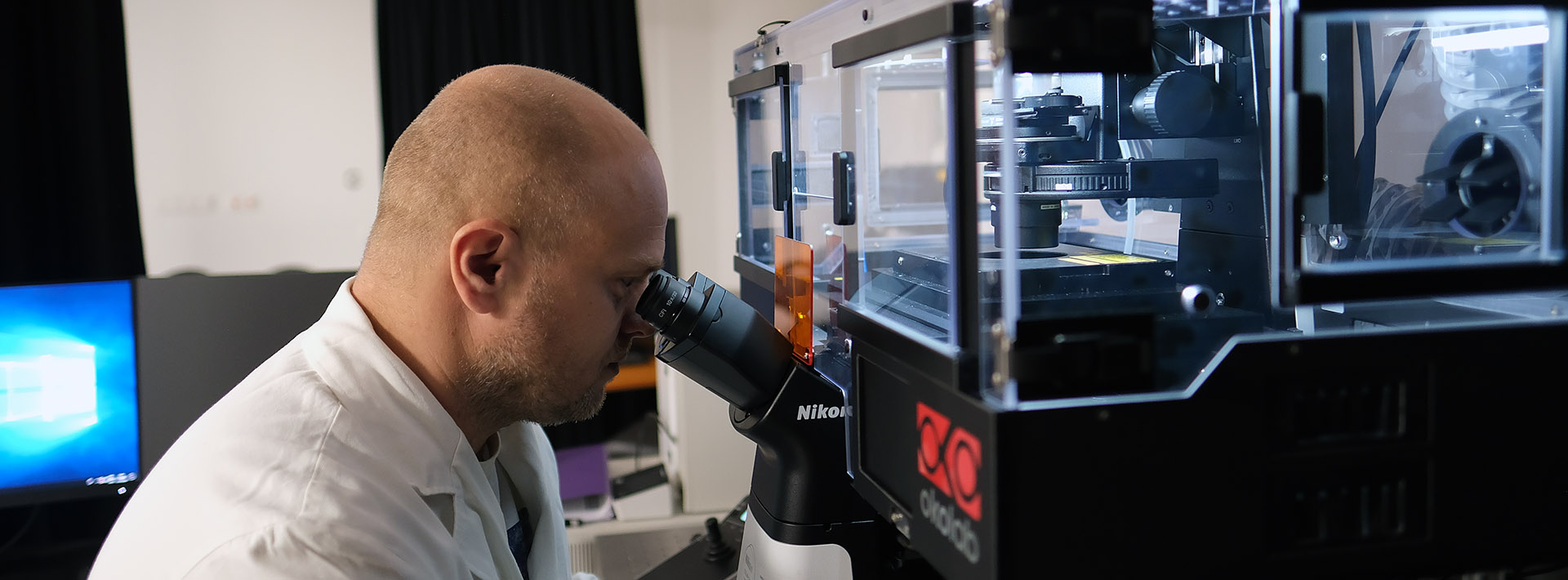Data
Official data in SubjectManager for the following academic year: 2024-2025
Course director
-
Zelena Dóra Tímea
professor,
Institute of Physiology -
Number of hours/semester
lectures: 12 hours
practices: 0 hours
seminars: 0 hours
total of: 12 hours
Subject data
- Code of subject: OXFKII-z-T
- 1 kredit
- Dentistry
- Optional modul
- spring
OZAEF1-T finished
Course headcount limitations
min. 5 – max. 100
Available as Campus course for . Campus-karok: ÁOK ÁJK BTK ETK KPVK GYTK KTK MK TTK
Topic
In addition to cardiovascular disease, brain disease imposes a significant burden on both the individual and society, and research into these is essential both for a better understanding of the processes and for seeking new pathways to healing. During the course, students will be introduced to the animal models used in the research (rodents, zebra finches), the latest results of research on our visual system, our largest information processing body, various aspects of learning and the interaction of metabolism and brain. The lectures, without being exhaustive, provide a glimpse into university research.
Lectures
- 1. Advantages of animal models, especially in relation to autism spectrum disorder and schizophrenia - László Kristóf
- 2. Significance of the gastrointestinal microbiome in the organization of behavioral processes. - Mintál Kitti
- 3. Physiological and morphological research in the visual system - Buzás Péter
- 4. Examination of the maturation of the visual system by psychophysical and electrophysiological methods - Ráczné Mikó-Baráth Eszter
- 5. Examining the role of plasma membrane in cell function - Barabás Klaudia
- 6. The role of neurotensin and its interactions in the regulation of behavior - Ollmann Tamás
- 7. Learning, computation and nervous system: what can we do with the reinforcement learning theory? - Gálosi Rita
- 8. Forebrain glucose-monitoring neurons: Complex functional attributes in the regulation of homeostasis - Hormay Edina Emőke
- 9. Posttraumatic stress disorder as a metabolic disease - Zelena Dóra Tímea
- 10. CRHergic neurons of median raphe region regulates stress and anxiety - Zelena Dóra Tímea
- 11. The role of membrane regions in signal transduction - Ernszt Dávid
- 12. The role of zinc and purinergic receptors in major depression - Kovács Gergely
Practices
Seminars
Reading material
Obligatory literature
Literature developed by the Department
Hand-outs will be given.
Notes
Recommended literature
Conditions for acceptance of the semester
During the semester students write a 3-5 page essay.
Mid-term exams
During the semester students write a 3-5 page essay.
Making up for missed classes
Make-up classes are possible if needed, students have to make appointments.
Exam topics/questions
Will be anounced during the semester.
